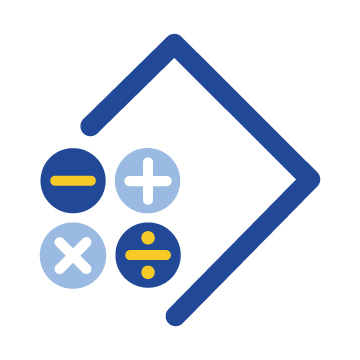About Us
We are a growing coalition of DC education agencies and researchers engaged in a collaborative effort, including:
What We Do
Mathematics is a cornerstone of education, critical for individual growth and societal advancement. However, traditional approaches to math education have often failed to consider the diverse learning needs of students and the cognitive science behind how students learn math most effectively. Recognizing this, the District of Columbia Math Hub will promote evidence-based math instruction—a pedagogical framework grounded in empirical research that outlines the most effective strategies for math instruction.
Vision
To create a centralized hub at the DC Educational Research Collaborative that coordinates with DC’s 69 local education agencies (LEAs) to collect, analyze, and learn through scientific inquiry how students best learn and apply mathematical skills.
Objectives
To synthesize and disseminate the latest research on mathematics education to educators across 69 LEAs.
To provide ongoing professional development and support for teachers, enabling them to implement the leading research about effective math instructional strategies in their classrooms.
To facilitate partnerships between educational researchers and practitioners for the continuous improvement of math instruction.
To monitor and evaluate the effectiveness of evidence-based math teaching strategies on student outcomes.
To develop a model of math education that can be replicated nationally and internationally.
Why We Do It
Math literacy is a fundamental component of a student's education, but national and international assessments indicate a persistent gap in math proficiency. Educational research has made significant strides in understanding the best methods for teaching math, similar to the progress seen in the Science of Reading. A concerted effort to apply this research systematically in classrooms is necessary for substantial improvement in math education outcomes.
How We’ll Get There
Research and Knowledge Sharing
Curate a comprehensive repository of research findings related evidence-based math.
Organize symposia, conferences, and workshops to disseminate these findings.
Create a digital platform for continuous knowledge exchange between researchers and educators.
Professional Development
Develop training modules based on evidence-based math principles.
Offer coaching and mentoring programs for teachers.
Establish observation and feedback systems to refine instructional practices.
Collaboration
Form partnerships with universities, research institutions, and education think tanks.
Engage with policymakers to align educational standards with research findings.
Encourage community and parental involvement in math education.
Monitoring and Evaluation
Implement a robust framework for tracking student performance and instructional effectiveness.
Conduct longitudinal studies to assess the impact of evidence-based math instruction over time.
Utilize data analytics to personalize and adapt math instruction for diverse student needs.




